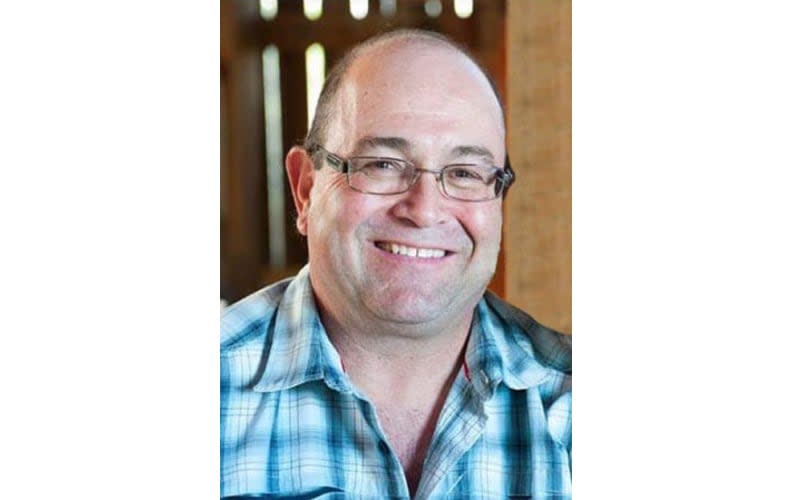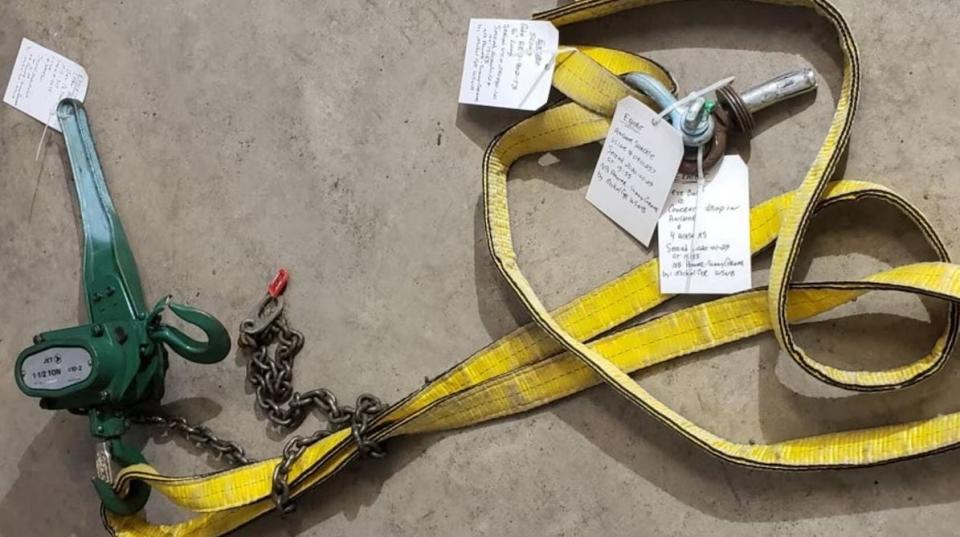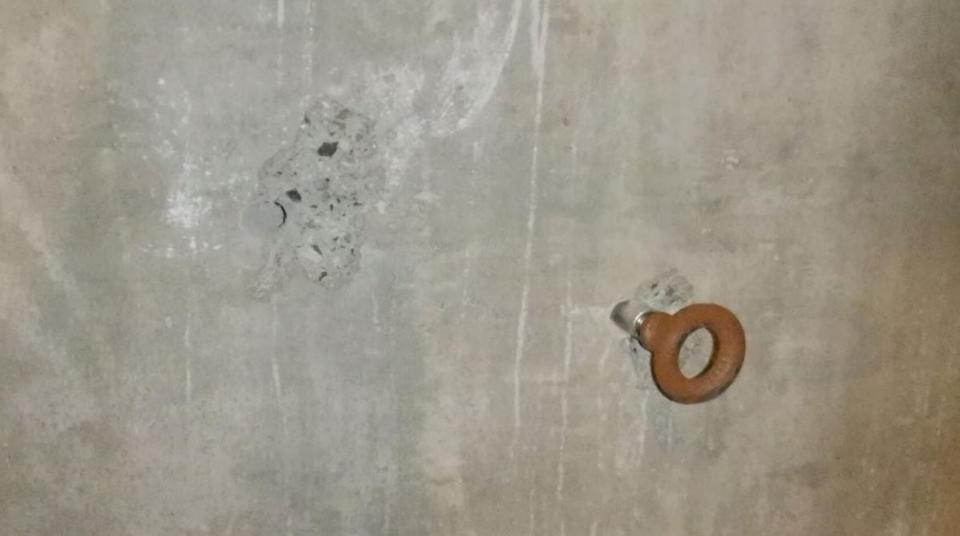'Unacceptable' equipment installation led to worker's death in Belledune, coroner's inquest hears

A three-day coroner's inquest into a workplace death ended Thursday with seven recommendations to prevent similar tragedies.
Louis Gagnon, 56, was a scaffolder from the northern New Brunswick community of Petit-Rocher. He was doing work for a subcontractor, Sunny Corner Enterprises of Miramichi, when he died at the N.B. Power Plant in Belledune on Jan. 27, 2020.
The five-person jury for the inquest in Campbellton found the death to be accidental.
About 20 workers were at the plant on the day of Gagnon's death. They were running an electrical cable, several hundred metres long, in underground pipes. The cable was being pulled through the pipe with a strong mechanical winch, and was guided by a network of pulleys attached to concrete walls by anchor points.
It was one of those concrete anchors that gave way, and Gagnon was struck in the chest by a metal pulley, later dying from his injuries. He was survived by his wife and three children.

The anchor that failed and killed Gagnon is seen on the right in a photo provided as evidence by WorkSafeNB. (WorkSafe N.B.)
On Wednesday, the inquest heard from two experts who testified the concrete anchor was improperly installed.
A total of 14 witnesses testified, confirming that the concrete anchor that gave way was improperly installed and was not inspected.
Training not focused on anchor installation
WorkSafeNB investigator Michel Cyr told the inquest that safety training for the workers had been focused on the cable but not the installation of concrete anchors and pulley system.
Kevin Giles, the health and safety manager of Nova Scotia-based Hercules Group of Companies, testified his company is a major supplier of various types of ropes and chains and offers field training.
He was sent to analyze the anchors by WorkSafeNB and found what he called several technical problems.
He said some parts, including the concrete anchor and eyebolt were not used as recommended by manufacturers, reducing their maximum load strength.

The concrete anchor that failed was attached to the hole visible on the left in this evidence photo provided by WorkSafeNB. (WorkSafe N.B.)
Testifying by videoconference, Giles said these were "unacceptable equipment installation practices."
Another engineering expert, Gary Daneff of Fredericton, also visited the accident site to investigate.
"The anchor had not been completely inserted into the hole," Daneff said. He also found that the anchors had been installed before the work began, adding it is a risky practice to use pre-existing anchors in work like this.
None of the witnesses had been able to determine who installed the anchor points or when they were installed.
Daneff also noted that other parts of the pulley system were inadequate.
The force applied to another part of the pulley system was about four times its capacity, he noted.
If the concrete anchor had not given in, other parts of the system might have instead, Daneff said.
Family satisfied with recommendations
An inquest is a legal proceeding that allows the circumstances of a death to be presented publicly. The jury does not assign legal responsibility for the death but makes suggestions to prevent deaths under similar circumstances.
The victim's family was present for the hearings.
"It was still a pretty intense three days, especially in terms of emotions," said Lisa Gagnon, the victim's sister, in an interview in French.
"It brings back things that aren't always fun to remember. But on the other hand, it answered a lot of questions we had."
She welcomed the recommendations from the inquest and said she was "very satisfied."

Yolande Gagnon, left, the victim's wife, and Lisa Gagnon, the victim's sister, said they were satisfied with the recommendations but found the proceedings hard to listen to. (Pascal Raiche-Nogue/Radio-Canada)
Nevertheless, she said, the inquest's findings disturbed her — particularly the findings that the equipment was used when it hadn't been inspected.
"What we also found was that it was a shame that there were so many gaps and that this could have been prevented," Gagnon said.
Recommendations focus on training, planning
One of the jury's seven recommendations was that workers installing equipment such as the pulley rigging system should receive training. They also said the equipment should be inspected, and the risk zone with this pulley system should clearly be marked.

Gagnon was working as a scaffolder for Sunny Corner Enterprises Inc., which was contracted to provide construction services at the generating station, N.B. Power officials said at the time. (N.B. Power)
Deputy chief coroner Emily Caissy added an eighth recommendation: that N.B. Power and its subcontractors adequately plan work and involve engineers in such planning.
Belledune is New Brunswick's last coal-fired power plant and must shut down, or convert to another fuel source, in time for a federal coal phaseout in 2030.


